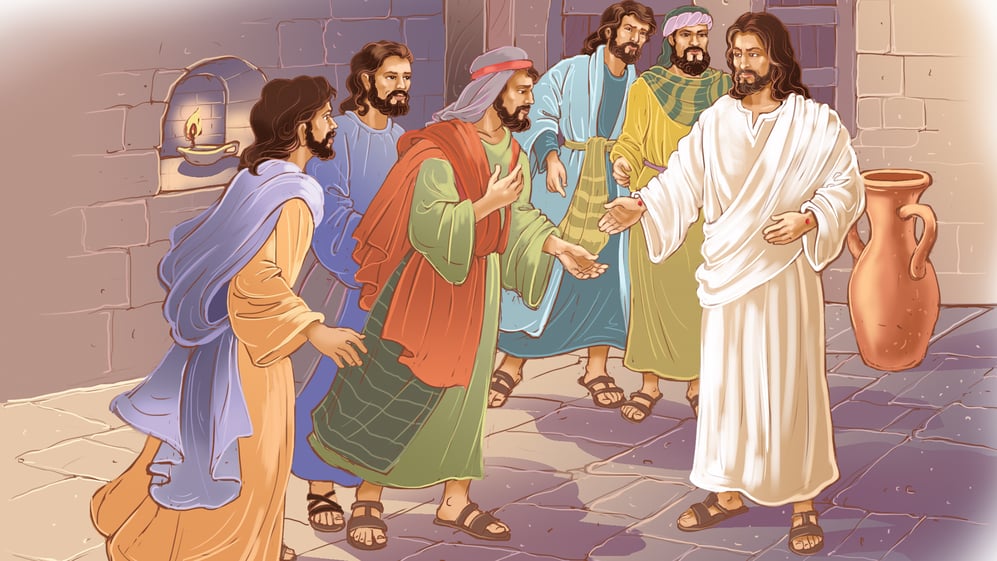The Gospels reveal little regarding Simon the Zealot. It is important to distinguish Simon the Zealot from Simon Peter. As “Simon” was a common name in Jesus’ context, it is not surprising that the Twelve included more than one. Regarding this Simon’s name, “Zealot,” there are possibilities. Either “Zealot” is about the apostle’s passionate faith, or his membership in a New Testament group called the “Zealots,” or both.
Given that details of Simon are so spare, I will address a couple of issues related to Simon’s zeal.
Key verses regarding Simon the Zealot:
Matthew 10:2–4
The names of the twelve apostles are these: first, Simon, who is called Peter, and Andrew his brother; James the son of Zebedee, and John his brother; Philip and Bartholomew; Thomas and Matthew the tax collector; James the son of Alphaeus, and Thaddaeus; Simon the Zealot, and Judas Iscariot, who betrayed Him.
Acts 1:12–13
Then they returned to Jerusalem from the mount called Olivet, which is near Jerusalem, a Sabbath day’s journey away. And when they had entered, they went up to the upper room, where they were staying, Peter and John and James and Andrew, Philip and Thomas, Bartholomew and Matthew, James the son of Alphaeus and Simon the Zealot and Judas the son of James.
Matthew 22:17–22
“Tell us, then, what You think. Is it lawful to pay taxes to Caesar, or not?” But Jesus, aware of their malice, said, “Why put Me to the test, you hypocrites? Show Me the coin for the tax.” And they brought Him a denarius. And Jesus said to them, “Whose likeness and inscription is this?” They said, “Caesar’s.” Then He said to them, “Therefore render to Caesar the things that are Caesar’s, and to God the things that are God’s.”
Exodus 20:3
You shall have no other gods before Me.
Exodus 20:12
Honor your father and your mother, that your days may be long in the land that the LORD your God is giving you.
Acts 22:3
I am a Jew, born in Tarsus in Cilicia, but brought up in this city, educated at the feet of Gamaliel according to the strict manner of the law of our fathers, being zealous for God as all of you are this day.
What do we know about Simon the Zealot?
- He was present with the others at the calling of Matthias to replace Judas. (Acts 1:13)
- Jesus gave him power to cast out demons and heal diseases. (Matthew 10:1)
- Jesus sent him out to preach. (Mark 3:14)
- He was present for the institution of the Lord’s Supper. (Luke 22:14)
- Jesus did many wonders through Simon and the others. (Acts 2:43)
Zealous for what?
If Simon’s passion was so great as to warrant the name Zealot, we might assume that he approached his part of Jesus’ ministry with his trademark energy. Yet, was this always an asset to Jesus? Remember that the apostles did not fully grasp Jesus’ teaching. Whereas Christ taught regarding His Sonship to the Father, His ultimate task of redemption, and the kingdom of God, Simon may have gathered that our Lord’s goal was to restore the earthly kingdom of the Israelites. This makes sense if Simon was a member of the Jewish sect called the Zealots. This group rebelled against the Roman occupiers. Perhaps Simon took Jesus’ teaching to mean that obedience to God’s Law is paramount, even over grace through faith in Christ. Do you see the point? Zeal can be dangerous if applied to wrong understanding. Even the devil is zealous.
What can we learn from Simon for today?
Depending on their age, your students may have questions regarding what God says about obeying the government as it pertains to COVID and wearing masks, or the rioting related to racial concerns.
If Simon was a member of the Zealots, did he ever sin against God in the process of rebelling against the Romans? The Romans certainly abused those whom they subjugated, yet aren’t they the government God ordained? This issue presents a fine opportunity to teach regarding the First and Fourth Commandments. It is important that students understand that God provides earthly government for an orderly society and public safety. The guiding principle is that, unless obeying the Fourth Commandment requires that we disobey God, we are obliged to honor those in authority. When we disobey earthly authorities, we are first and foremost disobeying God.
Teaching Ideas for Simon the Zealot
Present these questions for discussion:
Older Students
- What if the government says it is illegal to worship Jesus in church or read the Bible in public? How do I respond?
- Imagine public schools require that students must study Islam, but all other religions are ignored. What can I do?
- Many states have limits on public gatherings in reaction to COVID. This might prevent some from worshiping. How can congregations respond without breaking the law?
Younger Students
- Jesus gives us dads and moms; how do they help us?
- Teachers give us rules in the classroom; how does this help you learn?
- When I break the rules, God forgives me because Jesus died on the cross and rose again. Does God forgive our parents and teachers too?
Learn to teach the stories of the twelve closest friends of Jesus.












